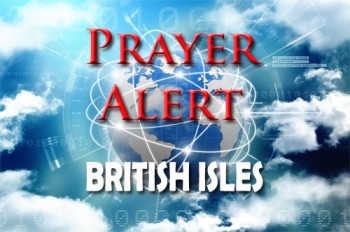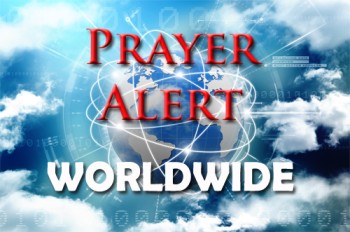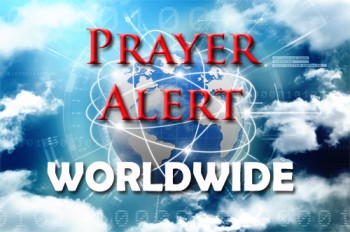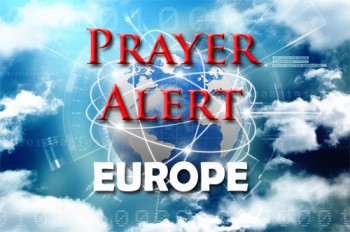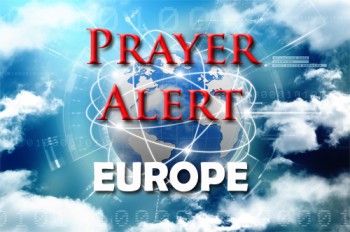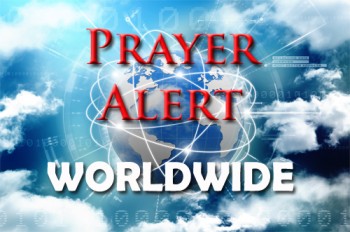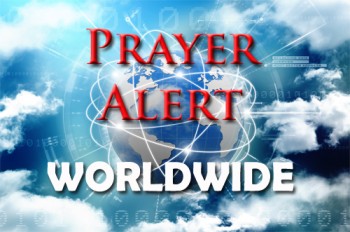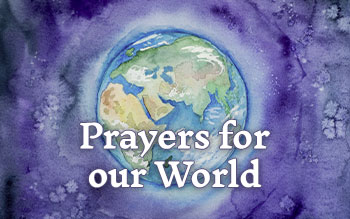Displaying items by tag: Islam
Met examining MP’s comments for hate speech
The Metropolitan Police is ‘assessing’ a report of hate speech made against MP Lee Anderson after comments which he made on 23 February. The force said it had received the report after the MP claimed ‘Islamists’ had ‘got control’ of London mayor Sadiq Khan, and he had ‘given away our capital’ to extremists. The Ashfield MP refused to apologise, and was suspended from the Tory party the next day. The prime minister's official spokesman said the language used was ‘wrong’, but added that Rishi Sunak did not believe Mr Anderson was racist. Mr Khan has urged the prime minister to call the remarks racist and Islamophobic. Mr Anderson, the former Tory deputy chairman who is now sitting in the House of Commons as an independent, has continued to refuse to apologise and said Mr Sunak made a ‘mistake’ in suspending him. Some of his Conservative colleagues, including Jacob Rees-Mogg, have expressed agreement with his viewpoint.
Syria: Alewite people in Latakia
Located on the Mediterranean Sea, Latakia is a port city of Syria. Its population of 340,000 includes a large community of Alewite people. Alewite Islam is a sect of Islam that is related to Shia. They place an emphasis on their trinity: Muhammad; his nephew and successor, Ali; and Salman al-Farisi. They believe in reincarnation and take part in a ‘mass’ involving bread and wine. They have their own religious book. Among Muslims they are regarded as heretical because of their beliefs and practices. We can pray, ‘Lord, would you use the Alawites and their idea of the trinity to show them that the Father, Son, and Spirit are the true Trinity, the Bible is the only true Word of God, and Jesus Christ is the only way to salvation. In this important port city, use this sect of people who have been rejected to bring Your truth to that city and country.’
Nigeria: dangers of being religious in a religious nation
Religious intolerance in one of the most religious countries in Africa is dominating debates ahead of next year's elections. It is rare to find anyone not devout in the mainly Muslim north or mainly Christian south. There is no official religion. Although they are guaranteed religious freedom the religious minorities live in fear. ‘We don't have freedom to worship. You are in trouble if you dress like a Muslim. We hide our religion.’ said Ibrahim, a Muslim in southern Nigeria. Obinna Nnadi once lived in the north but felt it was not safe to practise Christianity, so she moved her family south. Islamic law is in place in much of northern Nigeria. Rev Caleb Ahima, vice-president of the Christian Association of Nigeria, acknowledges that religious discrimination is a consequence of location. Meanwhile Odinani, the African traditional religion before Christianity, is making a comeback with younger people who are also facing intolerance and aggression.
From infidels to brothers and sisters
Sidqi’s family had strong ties to Islamic extremists and hated Christians. He harassed his Christian school friends - but they responded with love. When he beat up a boy and stole his jacket, the boy brought him another jacket the next day, saying ‘You might need this in winter’. These Christians had Sidqi’s attention, and he became friends with the people he had hated. When the father of his friend had an accident, the Christians gathered around to pray for him. Then, when his cousin had an accident, his mother prevented her father from helping someone from that side of the family. Sidqi saw the difference between Christianity and Islam and realised his community had been spreading lies about Christians. He began joining his Christian friends to read the Bible. Then when he prayed to Jesus, ‘Who are you?’ he saw a bright light. A hand touched him. A voice said, ‘I am the Way, the Truth, and the Life.’
Indonesia: Islamic hijab not mandatory in schools
Indonesia has banned schools from forcing girls to wear Islamic hijab headscarves after the case of a Christian pupil pressured to cover up sparked outrage in the world’s most populous Muslim nation (90% of the population follows Islam). The move was applauded by rights activists, who say non-Muslim girls have been forced for years to wear a hijab in conservative parts of the country. State schools across the archipelago of nearly 270 million people will face sanctions if they fail to comply with the edict. Nadiem Makarim, the education minister, said that religious attire was an individual choice and schools cannot make it compulsory.
France: religious transformation of schools
A French low-intensity war is bubbling around radicalising education. At a school in Saumur, a student told his teacher, ‘My father will behead you’. It is impossible to make a precise list of similar incidents that occur daily. ‘Faced with Islamist intimidation, what should we do?’ said Robert Redeker in 2006. A few days later, he began receiving death threats. Since then, things have worsened. A recent survey of self-censorship among teachers to avoid an incident revealed half of them admitted self-censoring in class. By fear, terror and intimidation, the extremism of ‘Islamism’ is reaping what it has sown. Many are now saying, ‘We should have paid more attention to that first case, the first in a long series of attacks on French teachers.’ In January 2021 a 17-year-old had to quit school and go into hiding after receiving thirty hate messages a minute for disparaging Islam last year. See
France: secularism causing divisions
The text of the 1905 French law that lays down the separation of church and state in the country doesn't specifically mention secularism. Nevertheless, the principle is a key part of the country's political fabric. But tensions between some sections of Islam and an interpretation of secular values have now become more pronounced, particularly in recent weeks. Protests have erupted in recent days in many Muslim countries against France, its president, Emmanuel Macron, and its perceived animosity towards their faith. France claims it is officially neutral, supporting neither religion nor the absence of it.
Saudi Arabia: Hajj - 29 to 31 July
The Hajj is one of the five pillars of Islam that all Muslims must perform at least once in their lifetime if they are able. On the Hajj Muslims seek the forgiveness of sins and to deepen their allegiance to Allah. In Luke 7, Jesus said to a sinful woman, ‘Your sins are forgiven: your faith has saved you; go in peace’. Jesus has the authority and power to forgive all of our sins through his atoning sacrifice on the cross and His resurrection. 1.8 billion Muslims in the world today reject Jesus as a Saviour. Instead, they go on the Hajj pilgrimage to Mecca in Saudi Arabia in order to earn forgiveness of sins from Allah. A phrase used in most Arabic conversations is ‘al-ḥamdu li-llāh’ - literally, ‘Praise be to God’. Pray for people to truly know God and praise Him when they use this phrase. See also
Burkina Faso: Islam gains as churches close
When the Burkinabe people gained independence in 1960, the motto ‘Unity, progress, justice’ embodied hope for them. Currently almost eighty ethnic groups embrace religious practices: earth priests, fortune tellers, healers, witchcraft, and animal sacrifice. Recently the president of the Episcopal Conference said that over 200 churches have closed in the north of the country to avoid attacks. If the world continues to do nothing, the result will be the elimination of a Christian presence. Muslims and Christians had enjoyed a peaceful coexistence. But this once-peaceful country has turned into a hotbed for extremism, and a long-held peace is under threat. Christians were specifically targeted in recent attacks. The violence has taken hundreds of lives (Muslim and Christian) and displaced tens of thousands more, as Islam rapidly spreads into nearly every ethnic group. Unreached peoples are steadily turning to Islamic teachings.
Iran: The real story isn’t political, it’s spiritual
Iran (MNN) — Tensions surround Iran’s current political affairs, and a spirit of fear grips people on the streets. Muhammed*, the leader of a Persian house church, says many Iranians live in constant trepidation.
“Iranians are glued to their TVs or their mobile phones, waiting for the next news update… waiting for Tomahawk missiles to rain down,” Muhammed says.“They don’t know what’s going to happen. People are really under a lot of weight and a lot of stress… pray that they don’t get so distracted that they lose sight of God.”
Headlines are “prayer prompts” - Scroll through ‘world news’ on your smartphone and you’ll likely see at least one headline focused on Iran. For example, Iranian authorities warn they’ll have to break the limits set by a 2015 nuclear deal in fewer than 10 days, BBC News reports. This development comes on the heels of multiple tanker attacks in key shipping lanes near Iran.
Over the weekend, Fox News Sunday host Chris Wallace asked Secretary of State Mike Pompeo how the United States would respond to Iranian aggression. While underscoring the administration’s desire to avoid war, Pompeo stated, “We’re going to guarantee freedom of navigation throughout the Strait [of Hormuz] …[the] United States [will take] all actions necessary, diplomatic and otherwise, that achieve that outcome.”
Headlines like these point to a larger spiritual reality. “I want people to be excited that we’re seeing the biggest revival happening in the Middle East since the Islamic conquest,” Muhammed says.“When they watch the news, they probably will see the name of Iran at least once a day. Well, that would be an awesome reminder to pray for the believers inside of Iran because God is doing something very special.”
What’s God doing in Iran?
Muhammed also urges caution when analyzing mainstream news reports about Iran. It’s not “a crazy, radical country,” he says. “That would be probably five-to-ten percent of the population. 90% of the population doesn’t believe in Islam but they believe in God still.
“It’s a beautiful time inside of Iran.”
Christ appears often to Iranians in dreams and visions, Muhammed says, and the “secret Church” is growing as Muslims come to faith in Jesus. “Iran is the fastest growing church in the world right now, faster than China…
“We have this ‘extra moment’ [when] the Gospel can move so powerfully, but the enemy, of course, isn’t going to let that happen. He’s like a roaring lion, looking for a way to slow this down… through political issues, the economic issues, through social issues.”
These spiritual realities make your prayers essential. Muhammed points to Daniel 10 as an example – “through [Daniel’s] prayer and fasting, he (the angel) conquers the Prince of Persia and gets the message [to Daniel] that God has sent him.”
Praise God for the mighty ways He’s moving in the Muslim world.
Ask Him to strengthen and encourage believers in Iran.
Use this Prayercast video to pray specifically for Iran, or use the “Love Muslims” series to pray strategically for the Muslim world.
“The biggest thing that people outside of Iran can do is pray for us.”
By Katey Hearth
More at: https://www.mnnonline.org/news/the-real-story-in-iran-isnt-political-its-spiritual/?ct=t(MNN_Daily_E_news_Blast4_8_2015
